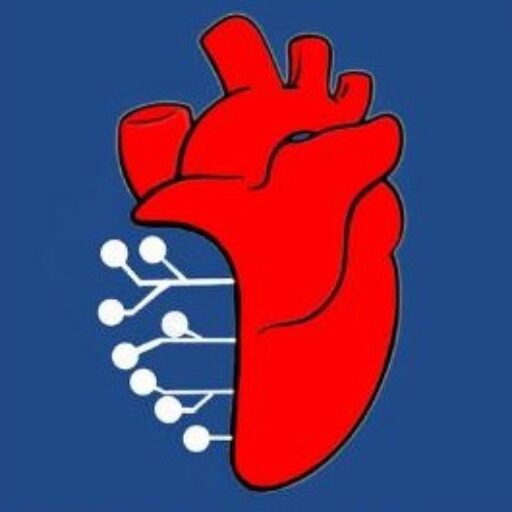Are you taking care of your heart? Regular heart health checkups are a vital part of maintaining a healthy life. By monitoring your heart health regularly, you can detect and address potential concerns before they become serious issues.
Whether you are young or old, having regular heart health checkups can provide valuable insights into your cardiovascular well-being. These checkups can help identify risk factors such as high blood pressure, high cholesterol levels, and irregular heartbeats, allowing for timely intervention and effective management.
Taking control of your heart health is crucial, as cardiovascular diseases are the leading cause of death worldwide. By partnering with your healthcare provider and scheduling routine checkups, you can stay informed about your heart’s condition and take proactive steps to maintain a healthy lifestyle.
So don’t wait until a heart problem arises. Prioritise regular heart health checkups to ensure your heart remains strong and vibrant. Your heart is the engine that keeps your body running, so give it the care and attention it deserves.
The importance of heart health checkups
Your heart is the engine that keeps your body running smoothly. It’s responsible for pumping oxygen and nutrients to every cell, tissue, and organ in your body. Therefore, taking care of your heart is essential for overall health and well-being.
Regular heart health checkups play a crucial role in maintaining heart health. They allow healthcare professionals to assess your heart’s condition, identify any potential issues, and provide appropriate guidance and treatment if needed. These checkups can help detect early signs of heart disease, which can be managed and treated more effectively when caught early on.
During a heart health checkup, your healthcare provider will evaluate various factors, such as your blood pressure, cholesterol levels, and heart rate. They may also perform additional tests, such as an electrocardiogram (ECG) or stress test, to assess your heart’s function and detect any abnormalities.
Understanding the risk factors for heart disease
Heart disease is a leading cause of death worldwide, but many risk factors can be managed or controlled through lifestyle changes and medical interventions. Understanding these risk factors is crucial in preventing heart disease and maintaining heart health.
Some common risk factors for heart disease include high blood pressure, high cholesterol levels, smoking, obesity, diabetes, family history of heart disease, and a sedentary lifestyle. By identifying these risk factors early on through regular heart health checkups, you can take steps to modify your lifestyle and reduce your chances of developing heart disease.
Common heart health checkup procedures
During a heart health checkup, your healthcare provider may perform various procedures to assess your heart’s condition and overall cardiovascular health. These procedures aim to provide a comprehensive evaluation of your heart’s function and detect any potential issues.
One of the most common procedures during a heart health checkup is measuring your blood pressure. High blood pressure can put extra strain on your heart and increase the risk of heart disease. Your healthcare provider will use a blood pressure cuff to measure the force of blood against the walls of your arteries.
Another important test is measuring your cholesterol levels. High levels of cholesterol can lead to the buildup of plaque in your arteries, increasing the risk of heart disease. A blood sample will be taken to measure your total cholesterol, LDL (bad) cholesterol, HDL (good) cholesterol, and triglyceride levels.
Benefits of regular heart health checkups
Regular heart health checkups offer numerous benefits for your overall well-being and heart health. By staying proactive and monitoring your heart’s condition on a regular basis, you can reap the following advantages:
1. Early detection and prevention: Regular heart health checkups can help detect early signs of heart disease and other cardiovascular issues. Early detection allows for timely intervention and treatment, potentially preventing further complications and improving outcomes.
2. Risk factor identification: Heart health checkups can help identify risk factors such as high blood pressure, high cholesterol levels, and diabetes. By recognizing these risk factors, you can take proactive steps to manage them through lifestyle changes and medical interventions.
3. Personalized guidance and treatment: During a heart health checkup, your healthcare provider can offer personalized guidance on maintaining a healthy lifestyle and managing any existing heart conditions. They may recommend dietary changes, exercise routines, medication adjustments, or other interventions based on your specific needs.
4. Peace of mind: Regular heart health checkups provide reassurance and peace of mind, knowing that you are actively monitoring your heart’s condition. This can alleviate anxiety and allow you to focus on leading a healthy and fulfilling life.
How often should you get a heart health checkup?
The frequency of heart health checkups may vary depending on your age, medical history, and risk factors. It is best to consult with your healthcare provider to determine the appropriate schedule for your checkups. However, as a general guideline:
1. Young adults: If you are in good health and have no known risk factors, a heart health checkup every 2-4 years is typically recommended.
2. Adults with risk factors: If you have risk factors such as high blood pressure, high cholesterol levels, or a family history of heart disease, more frequent checkups may be necessary. Your healthcare provider may recommend yearly or biennial checkups to closely monitor your heart’s condition.
3. Adults with existing heart conditions: If you have already been diagnosed with a heart condition, your healthcare provider will likely recommend more frequent checkups to ensure proper management and treatment.
Tips for preparing for a heart health checkup
To make the most out of your heart health checkup, it’s important to come prepared. Here are some tips to help you get ready:
1. Make a list of questions: Before your checkup, jot down any questions or concerns you may have about your heart health. This will ensure that you address all your queries during the appointment.
2. Prepare your medical history: Gather information about your medical history, including any past heart conditions, surgeries, or procedures. This will help your healthcare provider assess your risk factors and tailor the checkup accordingly.
3. Bring a list of medications: Make a list of all the medications you are currently taking, including over-the-counter drugs, vitamins, and supplements. This information is crucial for your healthcare provider to evaluate potential interactions or side effects.
4. Wear comfortable clothing: Dress in loose and comfortable clothing for your checkup. You may need to remove certain garments for tests such as an ECG or blood pressure measurement.
Questions to ask your healthcare provider during a heart health checkup
Your heart health checkup is an opportunity to gather valuable information and seek guidance from your healthcare provider. Here are some questions you may consider asking:
1. What are my risk factors for heart disease, and how can I manage them?
2. Are there any specific dietary changes I should make to improve my heart health?
3. What is my blood pressure reading, and is it within a healthy range?
4. What are my cholesterol levels, and how can I lower them if necessary?
5. Should I be concerned about my heart rate or any irregularities in my heartbeat?
6. Are there any specific exercises or physical activities I should engage in to improve my heart health?
7. What lifestyle modifications can I make to reduce my risk of heart disease?
8. Are there any warning signs or symptoms I should watch out for that may indicate a heart problem?
Lifestyle changes to improve heart health
In addition to regular heart health checkups, making certain lifestyle changes can significantly improve your heart health and reduce the risk of heart disease. Consider adopting the following habits:
1. Eat a heart-healthy diet: Incorporate more fruits, vegetables, whole grains, lean proteins, and healthy fats into your diet. Limit the intake of processed foods, saturated fats, trans fats, and added sugars.
2. Get regular exercise: Aim for at least 150 minutes of moderate-intensity aerobic exercise or 75 minutes of vigorous-intensity exercise each week. Engage in activities that raise your heart rate and improve cardiovascular fitness.
3. Maintain a healthy weight: Achieve and maintain a healthy weight through a combination of a balanced diet and regular physical activity. Excess weight puts strain on your heart and increases the risk of heart disease.
4. Quit smoking: If you smoke or use any tobacco products, quitting is one of the most significant steps you can take for your heart health. Smoking damages your blood vessels, increases blood pressure, and raises the risk of heart disease.
5. Limit alcohol consumption: Excessive alcohol consumption can contribute to high blood pressure, irregular heartbeats, and obesity. If you choose to drink, do so in moderation, which means up to one drink per day for women and up to two drinks per day for men.
Resources and support for maintaining a healthy heart
Maintaining heart health is a lifelong commitment, and various resources and support systems are available to assist you on your journey. Here are some valuable resources to consider:
1. Join our study: The MICardiac app collects the following data from your wearable devices: blood pressure, step count, exercise duration and heart rate. Watch your health progression and receive information that will help you in your journey for a better heart health.
2. The Heart Foundation: The Heart Foundation offers valuable information on heart disease prevention, healthy living, and support for individuals with heart conditions. Their website provides resources, articles, and tools to help you make informed choices for your heart health.
3. Local support groups: Joining a local support group or attending heart health workshops and seminars can provide you with emotional support and valuable insights from others who have experienced similar challenges.
4. Healthcare provider: Your healthcare provider is your most valuable resource when it comes to maintaining heart health. They can provide personalized guidance, recommend appropriate screenings and treatments, and answer any questions or concerns you may have.
Conclusion: Take charge of your heart health
Your heart is a remarkable organ that deserves your attention and care. Regular heart health checkups are vital in detecting and managing potential heart issues, ensuring you lead a healthy and vibrant life. By understanding your risk factors, preparing for checkups, and making lifestyle changes, you can take charge of your heart health and reduce the risk of heart disease. Prioritize regular heart health checkups, and give your heart the love and care it deserves.


